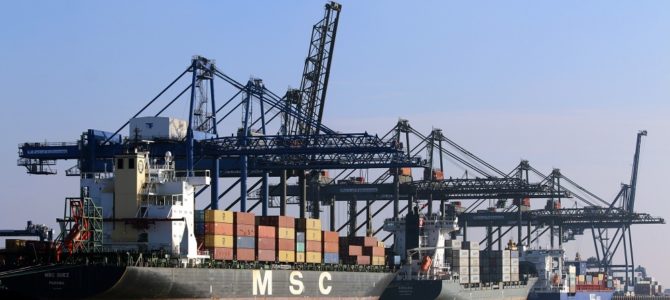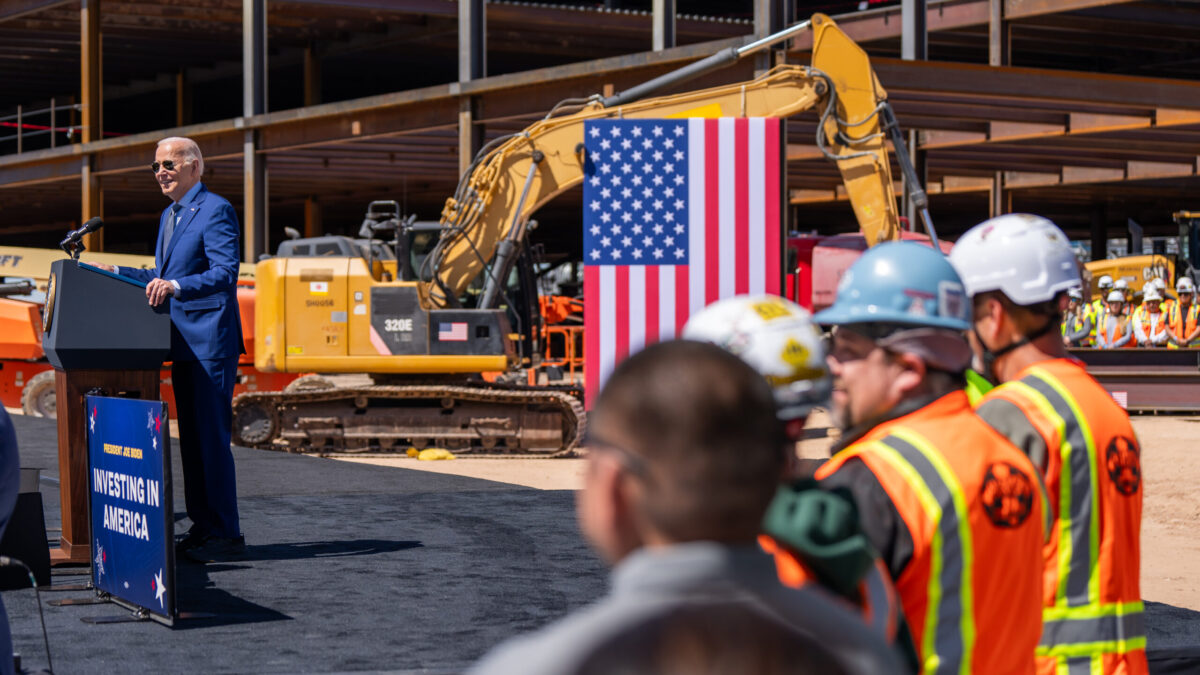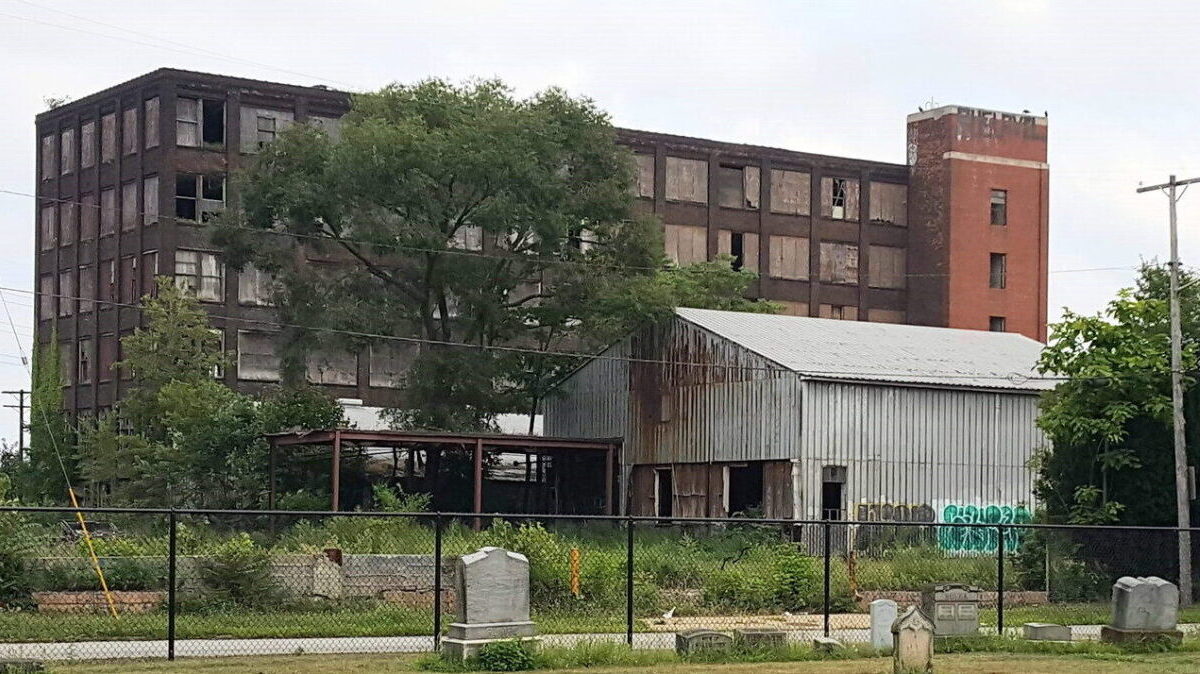
It seems almost embarrassing to have to rehearse the case for free markets and free trade, a case thoroughly established centuries ago by the likes of Adam Smith and especially Frederic Bastiat. But Donald Trump is determined to make us learn that case all over again, the hard way.
The key argument for free trade is that a tariff on imports may benefit one particular industry or group of producers, but it raises prices for everyone else, including other manufacturers who import the taxed material. You think the country is getting ahead because you see the increased profits for, say, domestic steel producers. The problem, as Bastiat famously pointed out, is what you don’t see—or at least, what Trump refuses to see—namely, all of the costs that tariffs impose on other companies and individuals.
It is not too difficult to see these things, because the newspapers are reporting on them. Hence, The New York Times describes the effects of President Trump’s trade war on imported aluminum (because if you don’t have aluminum, you don’t have a country).
The Aluminum Association, which represents the bulk of the American industry, says that 97 percent of American jobs in aluminum are at what are called ‘downstream’ businesses that shape the metal into things like auto parts or other goods. Those companies are hurt by Mr. Trump’s tariffs, because they must now pay higher prices for their raw materials….
Mr. Eberhart added that his [oil field services company] will also likely be hurt by the steel and aluminum tariffs, which ‘will raise the prices for materials for drilling rigs, pipes.’
There are many more companies in this country that use steel and aluminum, and many more people employed by those companies, than there are that make steel and aluminum. It follows that tariffs on these commodities will help a small minority while hurting the majority. This is basic free-trade economics at work.
Then there are the gains we give back by paying retaliatory tariffs on other products. When other countries impose retaliatory tariffs on our goods, they are not cheating or being mean to us. They are merely implementing the same principle behind our own tariffs. If it is bad for Americans to make their own choices and buy steel wherever they can get the lowest price, then it must be bad for the Chinese to enrich Texas cattlemen by buying American beef. So they should stop doing it, right?
Additional retaliatory tariffs on US pork by China and Mexico, set to go into effect this week, could cost the US pork industry about $2 billion annually. The U.S. Meat Export Federation has released reports outlining potential losses at $1.14 billion due to China’s tariffs and $835 million due to Mexico’s tariffs. And China’s tariff on imports of US beef—which gained access to China a year ago after a 13-year ban linked to a US case of bovine spongiform encephalopathy—is expected to cost the US industry more than $30 million in 2018.
A $2 billion loss in the pork industry is equal to 30.5 percent of US pork export sales in 2017, but the loss extends beyond export markets, according to USMEF. While new import duties on US meat can result in decreased export volumes as U.S. products are priced out of the market, they can also lower prices and margins for exported items as the trade adjusts to the new higher duties. They can also result in lower livestock prices in response to the decrease in meat prices and longer-term losses in market share due to trading partners’ desire to diversify away from the US.
Well, that’s just what you’d expect from our natural enemies in China, Mexico, and—er—Canada.
Canada implemented a 10 percent tariff on some US beef products on July 1 after the US moved ahead with tariffs on US imports of Canadian steel and aluminum. ‘Unfortunately we are the direct victims of trade retaliation,’ Kent Bacus, director of international trade and market access for National Cattlemen’s Beef Association, said in the Beltway Beef podcast on Thursday…. ‘If the whole point is to buy American, this is not really going about it the right way,’ he said.
In supposedly propping up American industry—by raising the price of its raw materials—Trump is mostly hitting U.S. agriculture.
‘I would like to tell the president, ‘Man, you are messing up our market,” said Kevin Scott, a soybean farmer in South Dakota and the secretary of the American Soybean Association. The idea of changing NAFTA, he said, ‘gives us a lot of heartburn in farm country.’ At the same time, Mr. Scott said, China’s threat to impose tariffs this week on United States soybeans—in direct response to Mr. Trump’s tariffs on other Chinese-made products—is already having a negative effect on the prices farmers see.
As this report sums it up, “policies designed to aid one group will eat into someone else’s business in ways that policymakers should have anticipated.” That’s in The New York Times, which probably doesn’t realize it’s parroting Bastiat’s powerful free-market arguments.
Part of the reason President Trump’s unilateral trade war is becoming such a quagmire is that it is carried out with no apparent plan or strategy. It is not a negotiating ploy to push other countries into a trade deal with the United States, because Trump announced this war by withdrawing from trade deal negotiations. Instead, his targets seem random and capricious. As with his hairstyle and many of his other political views, Trump’s attitude toward trade and industry seems to have been cemented in 1978, so he’s laying down trade barriers around the industries that associated with American economic might back then, like steel and cars.
Yet he is finding that even the quintessential American firms of 1978 are connected to the world if vast webs of trade. Take one of the brands Trump has lauded, Harley-Davidson. These days, Harley sells a lot of motorcycles in Europe, so Trump’s trade war is causing them to move some production overseas to avoid European retaliatory tariffs. Rather than rethink the tariffs, Trump threatened the company and accused it of “surrender” in his trade war.
The fact is that the U.S. economy is more dependent on international trade than threatened by it, and that includes the latest target for President Trump’s help, automakers.
Last month, Mr. Trump ordered an investigation into whether imported cars and automotive components pose a national security risk, calling for penalties expected to be as high as 25 percent. The administration has already put levies on imported steel and aluminum, and is about place tariffs on $34 billion worth of Chinese goods.
GM and other automakers rely heavily on parts and materials from overseas to build their cars. The president’s threat to pull out of the North American Free Trade Agreement could hurt the industry’s supply chain, which integrates operations in the United States, Canada and Mexico.
Perhaps this will not deter the administration, and the president will decide that we have to wreck the auto industry in order to save it. But the consequences and dangers of a trade war are all established and irrefutable free-market economics that everyone ought to have learned in school. Trump went to a school specifically formed to deny the benefits of free markets and international trade, and I’ll give him credit for being a good student: He didn’t learn the things they didn’t want to teach him.
The result is that the rest of us are going to have learn Bastiat’s lessons all over again, from painful experience.
Robert Tracinski is a senior writer for The Federalist. His work can also be found at The Tracinski Letter.









